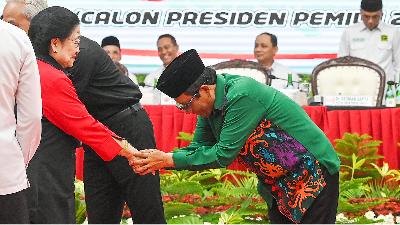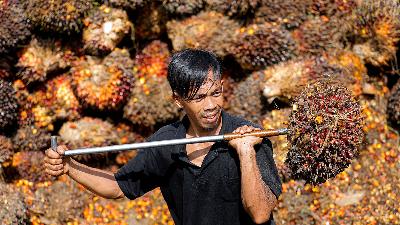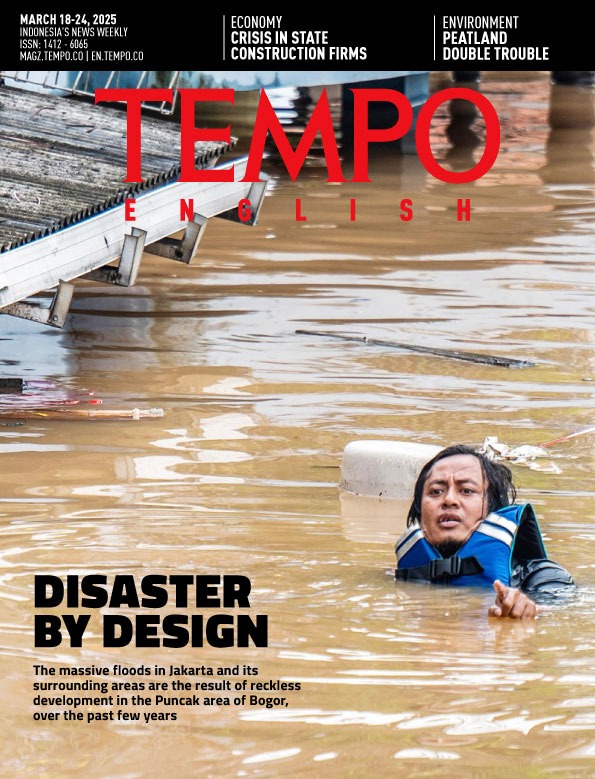Jokowi’s Ministerial Recruitment Failures
Monday, October 23, 2023
Syahrul Yasin Limpo is the sixth of Jokowi's ministers to be caught up in a corruption case. This is a sign of failure in the recruitment of cabinet members.
arsip tempo : 174442358587.

NINE years ago, the people welcomed the beginning of President Joko Widodo’s administration with many hopes, especially as he had involved the Corruption Eradication Commission (KPK) and the Financial Transaction Reports and Analysis Centre (PPATK) in the selection of his cabinet. Now, as we near the end of his second term, there is almost nothing left of the hopes for governance free of corruption.
Since 2014, a number of Jokowi’s ministers have been jailed for corruption. Syahrul Yasin Limpo, Agriculture Minister since 2009, will shortly become the sixth member of the cabinet to be jailed. The KPK says he was involved in the buying and selling of positions and a number of other offences. Dito Ariotedjo, who has been Youth and Sports Minister for less than a year, is reported to be under suspicion of being a case broker.
It is worth noting that Syahrul becomes a suspect in the new era of the KPK, which had most powers stripped away at the end of Jokowi’s first term. Former Communication and Informatics Minister Johnny Gerard Plate has been charged by the Attorney General’s Office with corruption relating to the supply of Internet signal transmission towers. Both men are National Democrat (NasDem) Party politicians. Therefore, as well as being a second noteworthy point, this gives rise to a charge of ‘politicization’ and ‘cherry picking’ in the eradication of corruption. If these accusations are true, it is possible that there will be many more additions to the list of corrupt ministers.
It is clear that Jokowi has failed in his selection of members of his cabinet in both of his terms. It is fair to say that this is a result of the politics of accommodating his supporters, especially those with political party backgrounds. Although he said at the start that “there will be no sharing out of authority,” he was only too willing to accept party representatives to fill ministerial posts—especially for posts seen as ‘lucrative’. He did not apply strict criteria when considering possible ministers.
As a result, although at the beginning he involved the KPK and the PPATK in appointing his 2014 cabinet, two ministers from that cabinet were jailed for corruption. They were representatives from the Golkar Party and the National Awakening Party (PKB), Idrus Marham and Imam Nahrawi, respectively. In his second term, Jokowi no longer involved the two agencies in the appointment of his ministers. As a result, within only a few months, a minister from the Great Indonesia Movement (Gerindra) Party, Edhy Prabowo, was jailed, followed by Juliari Batubara, from the Indonesian Democratic Party of Struggle (PDI-P).
This major step back in the implementation of clean government in the Jokowi era is confirmed by the results of a survey. Indonesia’s ranking in the 2022 Corruption Perception Index released by Transparency International Indonesia fell sharply. With a drop of four points from 38 to 34, Indonesia’s ranking fell from 96 to 110 of the 180 nations surveyed. The level of political corruption in Indonesia, according to the same organization, is still high.
It seems that it will be difficult to correct these weaknesses in the year remaining of Jokowi’s administration, especially since the President is now busy preparing for next year’s presidential and legislative elections. Therefore, any remaining hopes must be transferred to his replacement. And the people need to remind the new president from the outset that whoever is elected to lead Indonesia from 2024 to 2029 must recruit the members of his cabinet based on strict anti-corruption standards.











